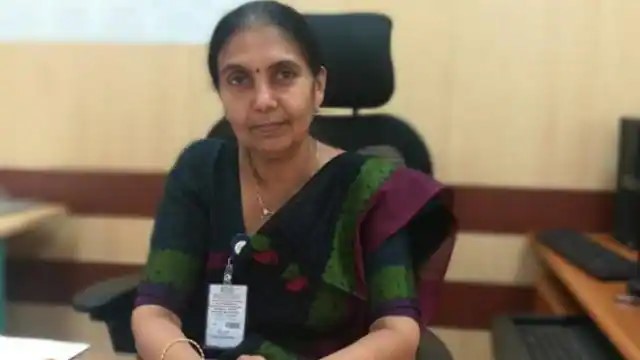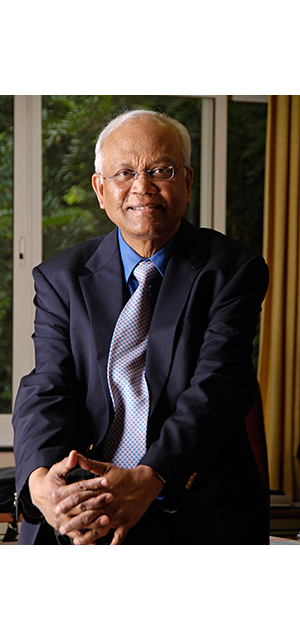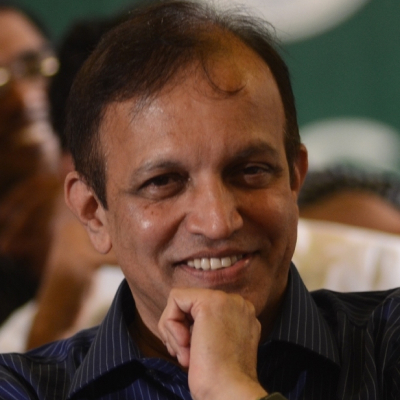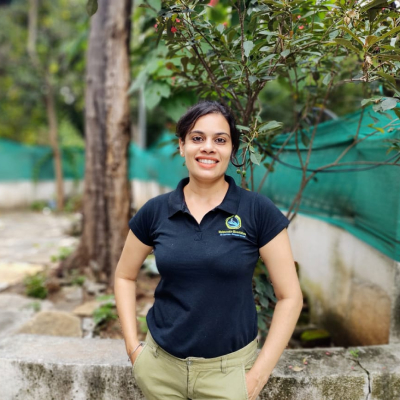–Dr. Aparna Deshpande
V R Lalithambika – the lady for whom sky is no longer the limit but it’s the beginning of her aspirations. A renowned scientist working with the Indian space research organisation (ISRO), she has specialized in Advanced launcher technologies. At present she is designated as Distinguished Scientist, and Director, Directorate of Human Space Programme at ISRO, which is the nodal agency for defining goals and targets for Human Space Programme, and for synergizing the national effort in this direction. In her earlier position as Deputy Director, Vikram Sarabhai Space Centre, she was responsible for guidance and control design, mission analysis and integrated simulation activities of all ISRO launch vehicles and has played a major role in their success. She was also an active contributor to the Task Group which has formulated ISRO’s Vision 2020. On Independence Day the prime minister of India made an announcement about the India’s Human Space Flight Programme. The chief of ISRO, K Sivan immediately choose the exemplary woman Dr Latithambika as a lead for the mission. Born in Thiruvananthapuram, Kerala she grew up watching the sounding rockets launched at the Thumba centre of ISRO which was in close proximity of her house. It was then the thought of rockets and space innovations enthralled her. After completing her engineering graduation and post-graduation from Kerala she joined Vikram Sarabhai Space centre (VSSC) in 1988. She completed her PhD from ISRO and was involved in the activities in initial crucial period where ISRO had just begun ingenious launch vehicle development. The initial few years were difficult as those were heady times for ISRO engineers as there first launch had failed. Just 3 months after her job joining she witnessed another failure of the launch vehicle which left her dumbfounded and indeed incited her to demonstrate her capabilities. After the first unsuccessful attempt the second launch was scheduled just 13 months later. This demanded dual working hours for the engineers to get their act together. She was able to understand that the mistake was in the software control and so she immediately took up the task of altering it. It was her hard work and understanding of the hitches which lead to the successful attempt of the launch vehicle. Finally, the attempt was successful with a lot work her team had put in to make sure that nothing was left unaddressed. She discreetly remembers this first successful Sept 93 launch of PSLV as one of the most prestigious events in her career. She was also the part of the classic Shriharikota launch of PSLV in October 1994. She played a critical role in getting the complex system right. The 1994 PSLV mission was a huge success, and so were its next 39 launches, leading it to being designated ‘the workhorse’ of ISRO. With due modesty she admits that this success had a lot to do with the learnings from the previous three failures.
Dr Latithambika is the recipient of many prestigious awards which include the Space Gold Medal (2001), ISRO Individual Merit Award and ISRO Performance Excellence Award (2013). She has also won Astronautical Society of India award for excellence in launch vehicle technology.
After being nominated as the Head for the Human space flight program (HSP) by the Prime minister of India she very humbly dispenses her success to the fellow engineers at ISRO. The work for this program will require a very proficient designing as it will cost a life unlike the other program which costs the failure of objectives. Also, a very strong national element is involved in this project which she is confident to accomplish. Sending astronauts requires the rocket design which can carry much heavy payload. From the past launch experiences of GSLV LVM -III in 2014 and GSAT-19 satellite in June 2017 which were headed by Dr Latithambika will prove to be helpful in the HSP program.
Lalithambika says she is lucky to work in an organization which nurtures and encourages growth of the people inside with a very liberating atmosphere. Also ,she accepts the reality that it is difficult to do justice to work as well as family obligations without a very strong support system. She describes about the crucial launch days where they have to stretch themselves to keep to the timeframe. There are personal sacrifices, but those are done with pleasure. In terms of how men and women are treated, she fervently believes that ISRO is leaps ahead. She pointed out that the safety and security of women is paramount in the institution. We at team S&T digital wish her a streak of luck for her most awaited HSP program.







Very motivating…
Hearing such incredible stories pushes me to take on failular after watching the webseries “Rocket Boys.”
Failures teach you more than what success does..
Thanks and all the best!!
Best Try